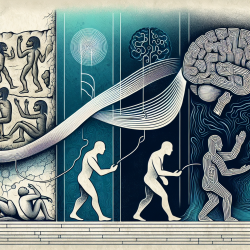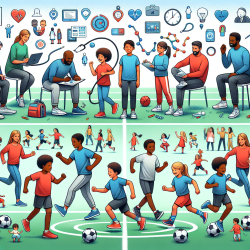As practitioners working in the field of autism, it’s crucial to stay updated with the latest research and methodologies. A recent study titled Why can’t children with autism integrate into society in China? Study based on the perspective of NGO classification offers valuable insights that can significantly enhance our approach to supporting children with autism. This blog will summarize the key findings of the research and suggest practical ways to implement these insights in your practice.
Understanding the Barriers
The study identifies several barriers that hinder the social integration of children with autism in China. These barriers are primarily influenced by the type of Non-Governmental Organizations (NGOs) involved. The research categorizes NGOs into three types based on their funding sources:
- Government-oriented NGOs
- Foundation-supported NGOs
- Individual-financed NGOs
Government-oriented NGOs
These NGOs are heavily influenced by government policies and funding. While they have the resources to provide services, their programs are often limited to younger children, leaving older children with autism underserved. Additionally, the strict assessment and reporting requirements can lead to a focus on meeting bureaucratic criteria rather than addressing the actual needs of children.
Foundation-supported NGOs
These organizations rely on project-based funding from foundations. The competitive nature of this funding often leads to a focus on high-impact, high-visibility projects. Consequently, children with severe autism or those requiring long-term support may be overlooked in favor of those who can quickly demonstrate progress.
Individual-financed NGOs
Typically founded by parents or small community groups, these NGOs face significant financial constraints. While they are highly motivated and focused on the needs of their children, their lack of resources can limit the scope and sustainability of their programs.
Practical Steps for Practitioners
Understanding these barriers can help practitioners tailor their approaches to better support children with autism. Here are some practical steps you can take:
- Advocate for Comprehensive Services: Push for programs that serve children of all ages, not just those under six. Highlight the long-term benefits of continuous support.
- Collaborate with Multiple NGOs: Partner with different types of NGOs to leverage their unique strengths. For example, use the resources of government-oriented NGOs while tapping into the flexibility of individual-financed NGOs.
- Focus on Individual Needs: Customize interventions to meet the specific needs of each child, rather than adhering strictly to predefined programs. This personalized approach can be more effective in achieving social integration.
- Encourage Community Involvement: Engage parents, teachers, and community members in the integration process. Community support can provide a more inclusive environment for children with autism.
Encouraging Further Research
The study underscores the need for ongoing research to identify effective strategies for integrating children with autism into society. As practitioners, staying informed about the latest research can help you adapt your methods and advocate for better policies and programs.
To read the original research paper, please follow this link: Why can’t children with autism integrate into society in China? Study based on the perspective of NGO classification










